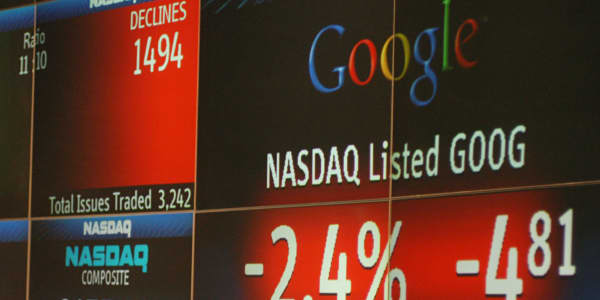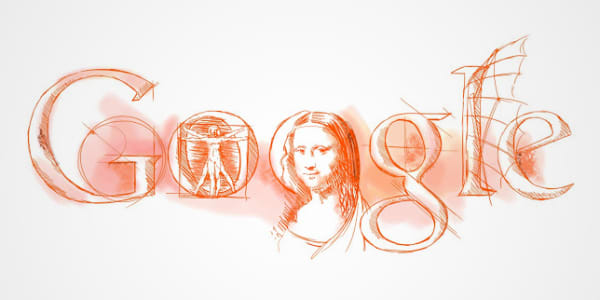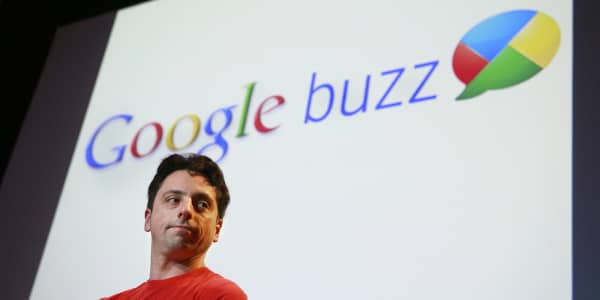Getting into the road show reminded Paul Bard of the velvet rope at a nightclub. The analyst for initial public offering boutique Renaissance Capital had been to plenty, beginning with eBay's pre-IPO presentation to Wall Street in 1998. But this was something else. After the $5 trillion technology stock bust, Google's 2004 debut was the tech sector's biggest IPO ever. The ballroom at New York's Waldorf Astoria hotel was packed, even into the balcony. For the first time ever, Bard had to show ID to reach his seat.
And then Google co-founders Sergey Brin and Larry Page—both wearing suits they bought the previous night after a last-minute decision not to push their luck, but still wearing sneakers, Bard noticed—laid an egg.
Ten years after Google's $1.8 billion IPO ended the Web bust once and for all, it's almost hard to remember what a controversial deal it was—and how much Google, now America's third-most valuable company, had to struggle to get it done. Days before the deal, the company was still busy eviscerating nearly everyone in media—Matt Drudge even wrote a headline calling the company "Giggle"—and its travails had money managers calling Page and especially the more-talkative Brin nasty names in private.
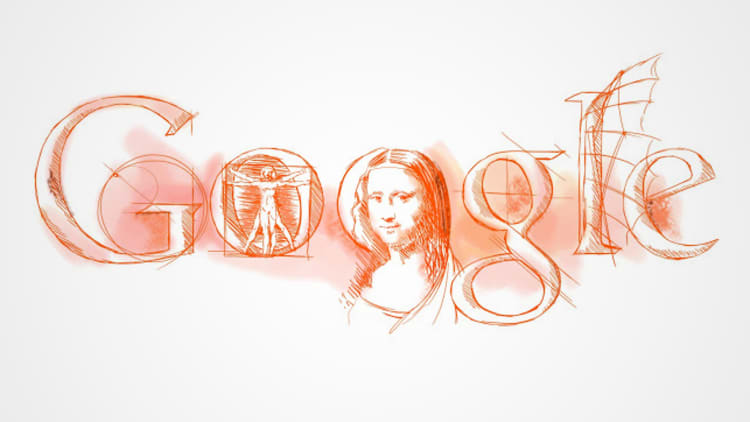
Google had to cut its price to a split-adjusted $42.50 a share from earlier estimates up to $67.50.
"It was an ugly, painful and amateurish process," said Mike Moe, then-chairman of ThinkEquity Partners and now chief investment officer of GSV Capital. And Wall Street wasn't buying it. "No one wanted to believe what they saw, to have confidence and then look bad. They didn't want to be the idiot who had believed it.''
Instead of a coronation, Google's IPO was a four-month cycle of recrimination, stress and not a little zaniness that began with its filing of pre-IPO paperwork in April and reached its peak in New York. Asked at the Waldorf about earnings prospects, Brin turned off his powerful audience by joking, "If I tell you, you'll just ask again," Bard remembered.
"That New York road show was much more casual than it should have been," said Lise Buyer, then Google vice president for business optimization, a title chosen in 2003 to obscure her real role of planning the then-secret IPO (though you could say her last name was a tip-off to her role).
"About 80 percent of what we tried to do before was to fix problems in the IPO process. The other 20 percent was us trying to do things differently just because we were different. And that's not a good idea."
It's easy to argue that no IPO was ever crazier than the Google offering. Money managers and pundits claimed Google's split-adjusted value was everywhere between $15 and $80, leading to the big price cut. And leading the skepticism from the press, The New York Times reported that tech insiders view the deal as a sucker's bet. Then-Microsoft CEO Steve Ballmer predicted Google would trade flat for years (this, from the man who paid $2 billion for the NBA's Los Angeles Clippers last week).
Apple co-founder Steve Wozniak told the Times, "I'm not buying. … Past experience leaves the taste that a few people—never ourselves—will make out the first day, but that it's not likely to appreciate a lot in the near future or maybe even the long future.''
Just when things began to quiet down, someone would break news, like Playboy's interview with Brin, Page and Google CEO Eric Schmidt. The magazine featured Schmidt's explanation of the company's "Don't be evil" motto by saying evil was whatever Brin said it was. Bard's boss at Renaissance, Linda Killian, said she'd never expected in her business career to send a younger, male employee to 7-Eleven to buy a skin mag. But it really was "for the articles." Or one article, at least (not to mention the rare Playboy article to make it into a Securities and Exchange Commission filing as a potential securities law violation).
"The Playboy interview made it look like we didn't have our act together," Buyer said, explaining that the interview was done in March, with little thought to when it would be released. "They got played by Playboy, but they shouldn't have done the interview within six months of when they did.''
Ten years later, Google's pre-IPO woes stand as a testimony to a tried-and-true story about the world's power brokers and the "smartest people in the room" not being nearly as smart as they could or should be.
No question was too silly to entertain. Analysts argued that Google's search engine was less diversified and less valuable than Yahoo's blend of display advertising and search, when search was taking advertising market share at will. Pundits and the press worried that Google would end up no stronger than Netscape—too easy for Microsoft to imitate. Piper Jaffray analyst Safa Rashtchy put out a report speculating that Microsoft's next Windows operating system would have Google-killing search features built in, even though Microsoft already had search functionality built into Windows' Internet Explorer.
Other questions were the reasonable result of the trauma tech had just been through. Aside from eBay and a few other leaders, profits had come back into the Web industry only in late 2002 and 2003. And just a handful of Internet IPOs had been done since the bust, with the best of them, Netflix, missing its quarter in July 2004 and losing half of its value. Yahoo missed that quarter, too. That was an acute problem as Google wooed money managers suddenly skeptical because Yahoo was Google's closest comparable, Buyer said.
"I sat through 75 road shows in 1999, and I had skid marks,'' said Barry Randall, now chief investment officer at Crabtree Asset Management in Minneapolis.
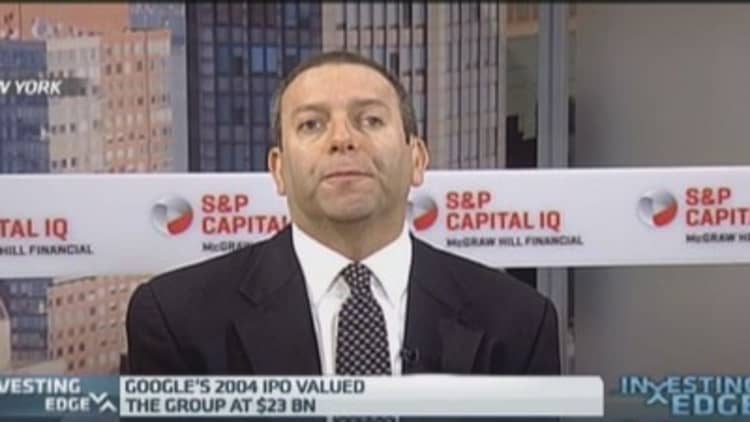
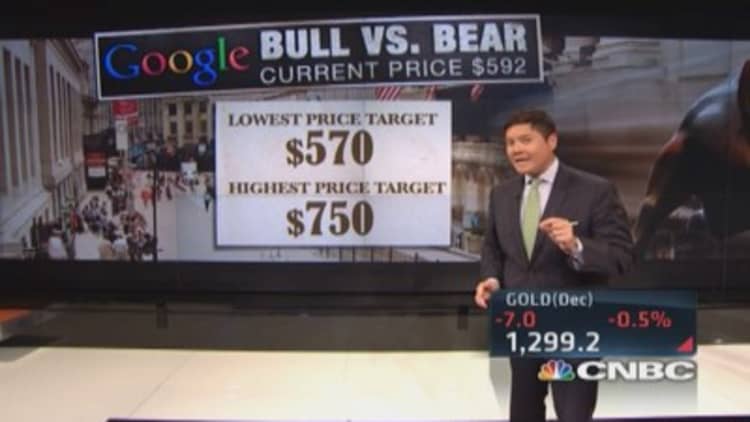
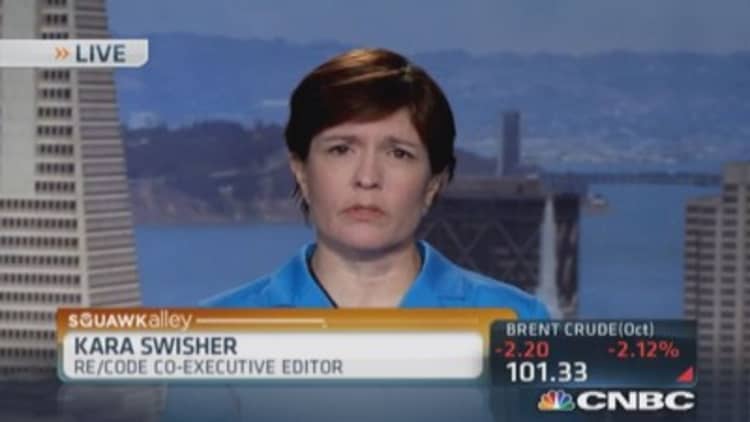
But the biggest source of agita was Google's determination to thumb its nose at Wall Street and its customs. It began with a decision Buyer said was misunderstood—asking Goldman Sachs not to bring its CEO Hank Paulson to a meeting to pitch Goldman as the deal's lead banker, a role that went to Morgan Stanley and Credit Suisse First Boston. Google wanted to see people who would work directly on the deal, she said.
"Goldman told them to pound sand because they were so rude," GSV Capital's Moe said.
Then came Google's filings with the Securities and Exchange Commission, featuring a seven-page letter from Page and Brin declaring Google wouldn't be a conventional company. Instead, it would favor high-risk, long-term projects over quarterly results and improve the world. And the company's structure was unusual in several ways: Page and Brin kept super-voting shares that gave them voting control, while other insiders could sell shares 15 days after the IPO rather than the more-normal six months. Then they wouldn't answer many questions about strategy at the road show, Bard said.
"It was like a twisted game of cat and mouse," he said.
Most of all, Google wanted to do its deal through a modified Dutch auction, where investors bid on shares and collectively set the price themselves. Page and Brin thought that fairer to small investors than a first-day pop that enriched hedge funds. The Street objected to loopholes investors thought let Google override the auction to set its own price.
Buyer, a former Wall Street analyst herself, said Brin and Page initially underestimated Wall Street because they also prejudiced in their own way as a result of the Web bubble bursting. Just as the Street saw Google through the prism of dot-com broken promises, the Google founders saw bankers through the lens of scandals over conflict-of-interest-tainted Wall Street research, Buyer said.
The Street's biggest complaint was that Google wouldn't give professional investors more information than the general public got in a Web-video version of its road show. Brin and Page thought that was fairer to small investors burned by bubble-era banking practices, and it was also the law by 2004, Buyer said.
She still believes Google was more right than wrong. "The coach can tell them to be ready, but until they saw it firsthand, they didn't know it,'' Buyer said. Video road shows have become an industry standard, while the long-term focus enabled by total control let Page and Brin ignore pressure to chase display advertising that would collapse in price and dive early into mobile media instead, Buyer said. "The things that turned out to be important we did properly," she added.
Markets may vote on companies' popularity in the short run, but they weigh them by their profits in the long run. By 2004, analysts like Scott Kessler of Standard & Poor's could see the big train coming through the tunnel. Weeks before the deal, he put Google's value as high as $80.50 per split-adjusted share. "People were focusing too much on the side issues," Kessler said this week.
In 2003 Google had made $105.6 million in profit on $1.47 billion in revenue and was on its way to $399.1 million in profit on $3.12 billion in sales for 2004. People knew they'd make money on Google, Randall said. What they didn't know—and fund managers especially wanted to know—was whether they would make money in 2014.
In the end, Google folded. They maintained the auction but cut the final price to $85, $42.50 adjusted for a split this year, giving Wall Street more short-term certainty. "At $85 it was the gift of all gifts," Moe said.
On August 19, 2004, I wrote in BusinessWeek, "Three days ago, the question was whether Google could really command the same price-earnings ratio as the two companies it most resembles: eBay and Yahoo. Google stock is [now] way cheaper than closeout e-tailer Overstock.com. … Show of hands: How many of you think Google should be valued less than Overstock?"
Moe said it feels like Google's IPO was 10 minutes ago, 10 minutes and $3 billion each to Brin and Page from their company's messy landing in the hands of the confused market. Maybe a billion less than they might have made if the IPO went more smoothly, but they've made it up many times over.
—By Tim Mullaney, special to CNBC.com




